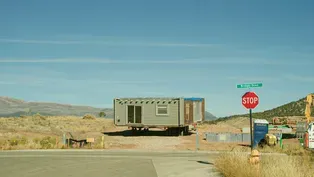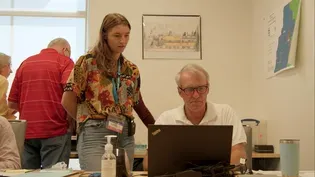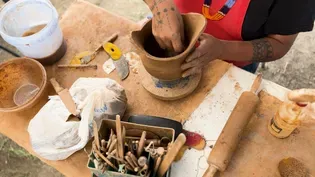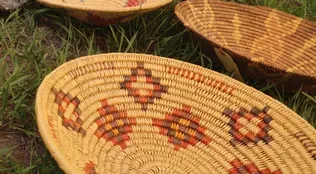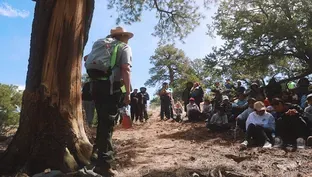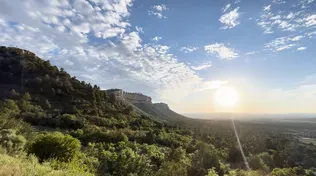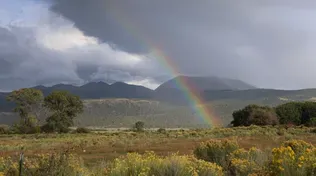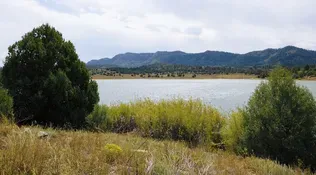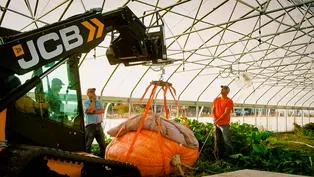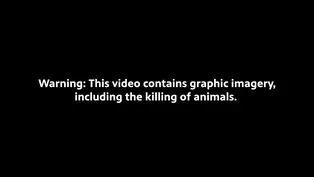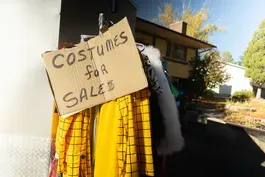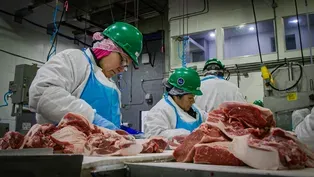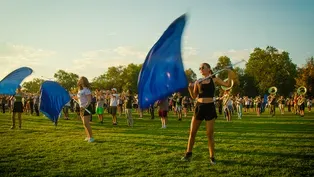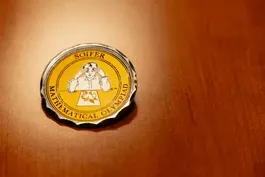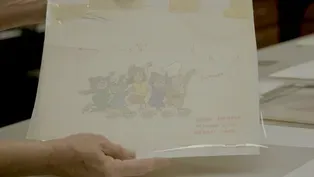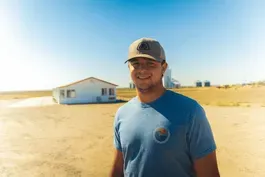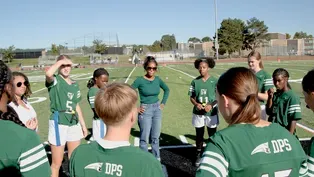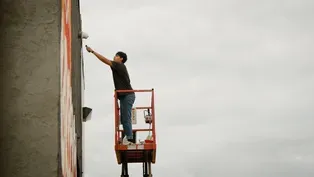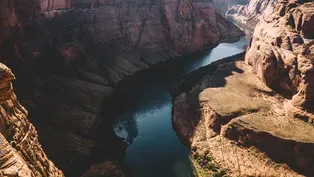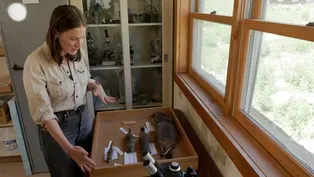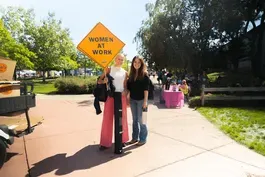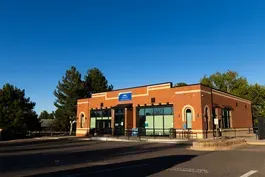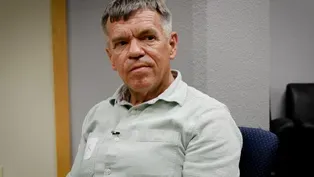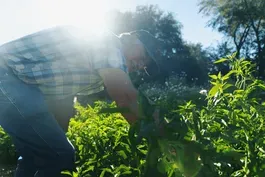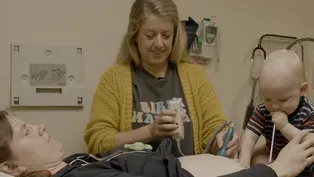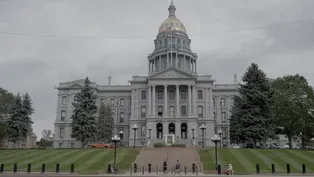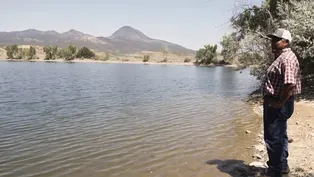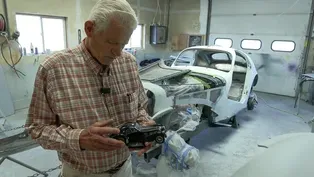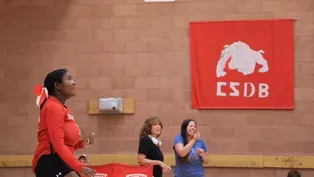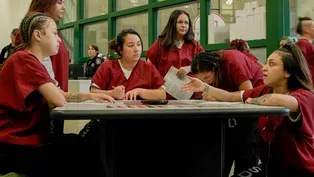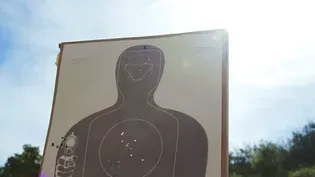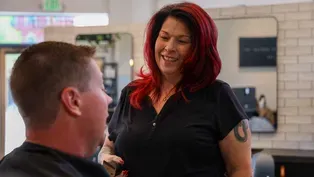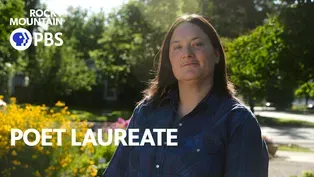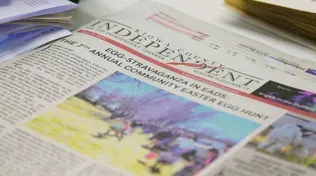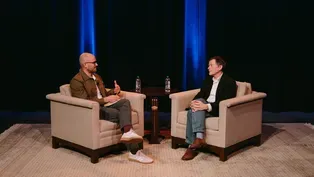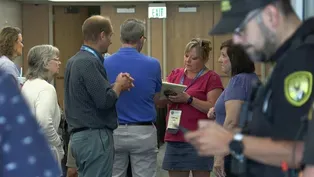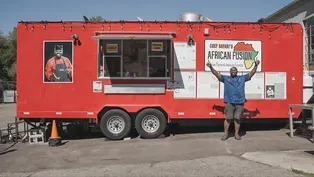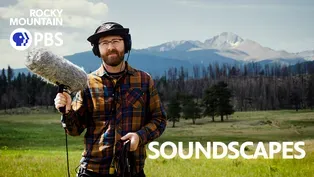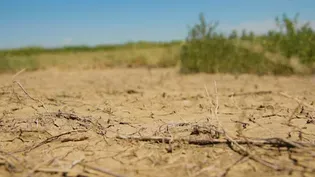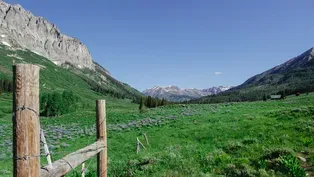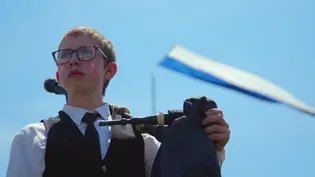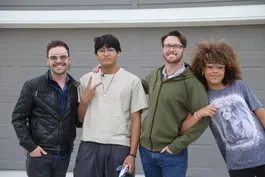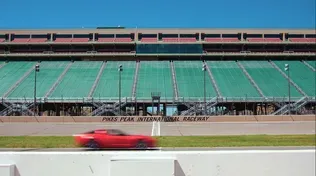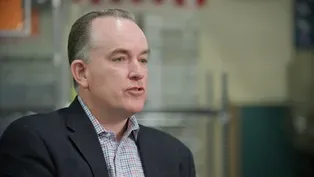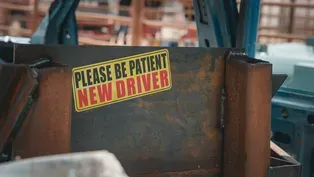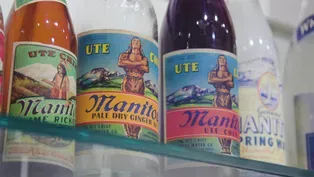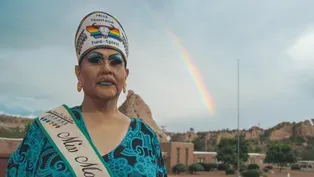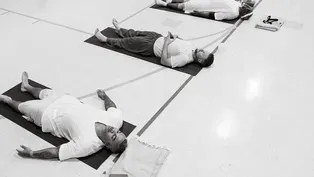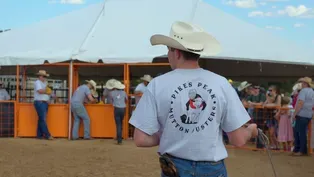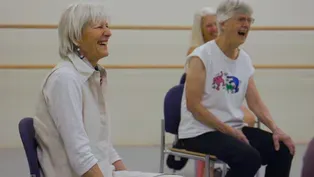Colorado Voices
A professional fact-checker on why media literacy matters
Clip | 17m 35sVideo has Closed Captions
Alex Mahadevan, Director of MediaWise shares the importance of media literacy.
Alex Mahadevan, Director of Poynter's MediaWise project, shares the importance of media literacy and why learning how to fact check information we find online really matters.
Problems with Closed Captions? Closed Captioning Feedback
Problems with Closed Captions? Closed Captioning Feedback
Colorado Voices is a local public television program presented by RMPBS
Colorado Voices
A professional fact-checker on why media literacy matters
Clip | 17m 35sVideo has Closed Captions
Alex Mahadevan, Director of Poynter's MediaWise project, shares the importance of media literacy and why learning how to fact check information we find online really matters.
Problems with Closed Captions? Closed Captioning Feedback
How to Watch Colorado Voices
Colorado Voices is available to stream on pbs.org and the free PBS App, available on iPhone, Apple TV, Android TV, Android smartphones, Amazon Fire TV, Amazon Fire Tablet, Roku, Samsung Smart TV, and Vizio.
Providing Support for PBS.org
Learn Moreabout PBS online sponsorshipMy name is Gabriela Resto-Montero I'm the managing editor at Rocky Mountain PBS, and Im here today with Alex Mahadevan, and he is a journalist with the Poynter Institute.
He's the director of MediaWise, which is a media literacy project aimed at combating digital misinformation.
He joins us today as Rocky Mountain PBSs ongoing democracy and media literacy project ahead of the 2024 election.
So welcome, Alex.
It's really great to be here.
Thank you so much for taking the to be with us.
I wanted to establish a few of your guidelines and kind of your thoughts on misinformation for our audience who are also interested in all of this.
So can we just start with you telling us a little bit about what MediaWise does and how you define misinformation VS. disinformation?
So MediaWise was founded in 2018 and our goal right off the bat was to help a million teenagers separate fact from fiction online.
And the way we do that is by teaching people how to think like fact checkers.
So our whole goal throughout all of these years has been to empower people to use the tools that fact checkers and journalists use to spot misinformation wherever they see it in their own life.
And so I just used the word misinformation.
So a lot of people hear misinforma- tion or disinformation.
There's some confusion about what those two terms mean.
So misinformation is anything false shared for any reason whatsoever So this might be my aunt shares a meme saying that Amazon is offering free $20 gift cards.
If you just call this number, you know, it might be totally false and totally a scam, but she's just sharing it because she loves me and she wants to pad my bank account.
So that's misinformation, for any reason its shared.
Disinformation is anything false that's shared on purpose.
So that's when you or I or any other expert is able to determine, hey, this person created this piece of false information, this video, this post, for a purpose, to scam people out of money, to influence how someone votes just to disrupt our democracy.
Is there any misinformation that is harmless?
That's a really good a really good question.
You're the expert.
I'd like to say that there are pieces of misinformation that are harmless.
I mean, personally, I'm a big fan of trying to find out about Florida's Skunk Ape which is my home state's version of the Sasquatch Now, that is, you know, to me, it seems relatively harmless, but the problem is, you know, our reality is in the we go about our lives.
Every decision we make is based upon the information that we consume.
The Facebook post, we see the Tik Tok videos, you know, the goofy memes that our friends send us.
So, you know, when you let your guard down for what you think might be harmless pieces of misinformation that can have ripple effects, the last thing I want to do is you know, encourage people to to establish bad habits.
You know, so I really enjoy, you know, like the Onion.
Satire is, you know, it's great.
But the problem is if someone shares an Onion article and they take out the part where it says it's from The Onion, it becomes misinformation and then it's harmful.
There are little white lies out there, but the problem is when they start adding up, they can affect your decisions, your friends, family and community.
When you encounter misinformation in the wild, like in your example, if your aunt shared a discount code that did not exist, how do you as as a non-journalist, how do you address that in a way thats not condescending or isolating the person who shared it or making them feel like they've done something horrible?
Be a good listener.
I think what's missing from a lot of the discourse is empathy right now for anything dealing with misinformation in particular.
So I think going into a conversation, even if its as harmless as a fake Amazon discount code, going in with empathy and talking to my aunt and asking, you know, hey, hey, you know, where did you see that post?
I really appreciate that you shared that with me.
It means you care about me, right?
did you do any research like, did you check out that person's profile?
And I guarantee she's not going to get defensive If you open with empathy and kind of explain to people, hey, listen, everybody falls for misinformation.
I always love to lead with you know, I have I have definitely fallen for misinformation.
And I'm an expert in this field.
So finding common ground, using empathy and listening, which admittedly are three things that we need a lot more of in the public discourse.
Are those keys - listening, empathy, do those also translate in a journalism setting when you're talking about fact checking & that as a discipline within journalism and how we in our work address misinformation.
Yes.
So, you know, I, I think a really well-written fact check is written in a way that is disarming to the audience.
You never want to be condescending, especially with, like Poynters.
PolitiFact is a member of Facebook's third party fact checking program.
So their goal is to attach fact checks to basically as many pieces of misinformation So people on Facebook will share and they will actually see a little thing that says this information is false.
So when you when you fact check you have to understand that there's someone on the other end of that fact check.
So I think fact checkers, sometimes there's a separation between fact checking and journalism, but I think both sides can learn from each other.
I think the same way a journalist shows up to a train derailment and speaks to people with empathy, asks the first question how are you doing?
You know, rather than what's going on.
I think that that's how you approach fact checking as well.
Earlier, you mentioned that even though fact checkers will always make one or more parties angry with the fact check, that in the aggregate audiences are really hungry for fact checks.
They are really hungry for the looking beneath claims and looking beneath things that are shared by not just politicians but other people in the public eye.
Can you speak a little bit more about that and about how much more widespread fact checking is than people may realize?
Yeah, so fact checking has grown massively since PolitiFact was founded in 2007/2008.
There are more than 400 fact checkers worldwide growing.
There might even be more than that.
The international Fact-checking Network, which is also based at Poynter, has, 100 plus signatories from many countries around the world.
We we have an annual fact checking conference.
We have like 500 people there and and in Seoul recently, because what we are what we were determining is in the US, falsehoods spoken by politicians have dire consequences.
We saw what happened on January sixth.
We saw what happened with anti-vaccine misinformation during COVID 19.
That's in the U.S. You look in other countries and in India, there are murders that happen based on misinform- ation spreading on WhatsApp.
There are, you know, I mean, there are coups that can happen based on misinformation.
So I think what people have realized is that we need to go beyond traditional journalism and really dig in to finding and debunking falsehoods because they are undermining democracies around the world.
And I think that's why youve seen such a growth in that.
And I think that's why audiences respond so well to it because, people don't want to be fooled.
People don't want to cast a vote and then find out that they've been manipulated.
Nobody likes to be manipulated.
Nobody likes that.
So I think people are hungry for fact checks because they want to know, When I go to the polls, I'm making a decision that's based on my thoughts, not some disinformer who's tried to influence my vote Yeah, thats certainly why we're taking on media literacy as a company.
You monitor a lot of the trends, I guess, in misinformation.
What are you seeing ahead of the 2024 election that is concerning you or that you feel that people should be a little bit more on alert about?
Well, a big one as of late falsehoods about the amount of illegal immigration into the country.
I think every election like clockwork, you start to see misinformation claiming that it's the worst year ever or the worst week ever or worst day ever for illegal immigration in the United States.
People like to share videos that claim to show the border people amassed at the border or caravans.
A great deal of that content is out of context.
So maybe like a video of a group of people at a different border from ten years ago, it's mis-captioned it's mis-contextualized.
So I think people need to be really on guard about when they see and hear politicians talking about immigration or, you know, illegal immigration, that they need to make sure that they're getting the facts, checking in with fact checkers.
Election integrity.
I think it some politicians have found that calling election integrity into question has become a really potent way to score votes, or at least to make people stay home and not vote.
So what we will definitely see is claims about, you know, absentee ballots being unsafe or not being counted or being over counted or you'll see lots and lots of voting misinformation.
And then the other thing that that always concerns me is misinformation about whats happening at polling places.
And, you know, is this polling place closed down or are there going to be ICE agents at this polling place that are looking..
So really what concerns me the most is misinformation around election integrity.
And and you know, how and when and where to vote.
That's a perfect segue way into part of your educational drive is giving folks the strategies to cope with misinformation when they encounter it in the wild.
So can you go over those strategies with us?
Yeah, absolutely.
Um, you know, I love journalists and I love fact checkers, but there's only so many of us.
So unfortunately, theres only so many videos we can debunk, memes we can say are not true.
So unfortunately, in this day and age, as personally someone who wakes up and is on X first thing in the morning, watches Tik Tok, I spend the entire day consuming information on social media.
So, you know, that's rough.
But part of it is my job.
But I kind of, you know, as consumers of social media and users of all online platforms, we kind of have to become our own fact checkers because theres just too much content out there.
It's not back in the day when you sat down and there were 3 news anchors you'd watch, now you're getting your news from 1,000 different sources, a newsletter, Substack, name it.
So you have to be able to be your own fact checker.
So to start, you know, the first thing that that I think it's really important to do is practice something called lateral reading.
So when you see a video or you see a meme or you see a post online instead of just reading vertically or just scrolling and watching the video, and what you're going to do is you're going to think about that video.
You're going to bounce to another another tab, use a search engine, plug in some keywords and try to find out if that video is true, if that post is legit, where it originally came from.
where it originally came from.
Open another tab.
Google who posted it.
Try to find out who's behind that post.
So you end up reading laterally, so youre reading across tabs to find more information about that post.
So instead of just staying in one tab, you're going to do multiple tabs.
The other key is something called click restraint.
So click restraint is really important because when you are using a search engine to find out whether that video of the border is real, you want to make sure youre clicking on the best search result you get.
So instead of clicking the first thing you see at the top of those search results, scroll down.
See if you recognize a news source.
See if you recognize your local PBS station.
Do you see an Associated Press article?
Do you see a PolitiFact fact check?
So using click restraint and really scanning search results is really important as well.
You're basically a mini reporter Turning people into mini reporters.
And that's the entire basis of the MediaWise program was around research from the Stanford History Education Group and they studied fact checkers, academics and students And what they found is academics and students were actually both pretty bad at spotting misinformation.
Fact checkers naturally were.
So they tried to figure out how do fact checkers actually navigate the Internet.
So they read laterally, they use click restraint.
They try to find out who's behind the information.
They read multiple sources.
So really, everything we teach is based on to turn you into your own fact checker.
When we were discussing just our best practices in the newsroom, theres the question about whether or not you want to go in for the indicator that gives the green light on a fact or the red light on a fact or you're going to have a Pinocchio or what have you.
So I'm going to put you on the spot.
I'm going to ask you for Rocky Mountain PBS.
What should our truth meter look like?
The truth-o-meter.. if we were going to have a truth meter on our fact checks.
What would it look like?
Yeah, I don't know.
I mean, it could be....
I try to think...
I don't know.
Im visualizing mountains..
Right.
and half the mountains are covered in snow because the fact has been obscured.
Oh.
That's very good.
Maybe you are a completely covered mountain and that is totally not legit.
I don't know I mean yeah.
With our readers actually a totally snow covered mountain might be legit, Id say.
Oh yeah, this is fresh powder.
This is an excellent start.
Thank you so much.
It is a challenge coming up with you know how to how do you actually call out a piece of misinformation?
At PolitiFact, it's pants on fire or false or mostly false.
But, there is a science that that goes into it.
So before I let you go, what is what you hope is the main takeaway for folks to have about media literacy and how they consume news?
Well, the main takeaway is every decision you make from the breakfast cereal you get at the grocery store to the vote that youre going to cast in this coming election is based on everything you see online.
And if you are consuming misinformation, you're being manipulated into making decisions that don't align with what you believe.
So by employing media literacy, by making sure you share good information, by talking to your friends and family about the importance of facts, you are protecting yourself.
You're protecting your friends, your family, and your community.
And you are being a good digital citizen.
Beautiful.
Thank you so much for your time.
We really appreciate it.
And we will be checking in with with our project.
Thank you.
Excited to see it launch.
When life gives you a house, move it.
Video has Closed Captions
Clip | 1m 30s | Owning a home had always seemed impossible. Then a historic cabin became available. (1m 30s)
Meet the election judges behind La Plata County’s voting process
Video has Closed Captions
Clip | 4m 26s | Selected community members in La Plata County began training as election judges. (4m 26s)
Sheldon Nuñez-Velarde: Master Potter of the Jicarilla Apache Nation
Clip | 5m 45s | The Jicarilla Apache honor their longstanding relationship to the natural world. (5m 45s)
Rowena Mora: Master Basket Weaver of the Jicarilla Apache Nation
Clip | 4m 27s | The Jicarilla Apache honor their longstanding relationship to the natural world. (4m 27s)
Plant Medicine of the Jicarilla Apache
Clip | 3m 27s | The Jicarilla Apache honor their longstanding relationship to the natural world. (3m 27s)
The Jicarilla Apache Creation Story
Video has Closed Captions
Clip | 4m 57s | The Jicarilla Apache honor their longstanding relationship to the natural world. (4m 57s)
Clip | 5m 37s | The Jicarilla Apache honor their longstanding relationship to the natural world. (5m 37s)
Ducklings Told to Protect the Lake
Clip | 2m 35s | The Jicarilla Apache honor their longstanding relationship to the natural world. (2m 35s)
Video has Closed Captions
Clip | 4m 58s | Inside the high-stakes world of competitive pumpkin growing (4m 58s)
Temple Grandin analyzes undercover video taken inside Superior Farms slaughterhouse Denver
Video has Closed Captions
Clip | 1m 54s | Undercover video taken inside Denver's Superior Farm plant with commentary from Temple Grandin (1m 54s)
The costuming family behind 60 years of handmade costumes in Colorado Springs
Video has Closed Captions
Clip | 4m 56s | The Saunders family once operated one of the largest custom costume shops in Colorado Springs (4m 56s)
Voters to decide fate of Denver's only slaughterhouse
Video has Closed Captions
Clip | 8m 14s | Superior Farms, the city’s only slaughterhouse, would be shut down if voters pass Ordinance 309. (8m 14s)
Keeping tradition alive with the CSU marching band
Video has Closed Captions
Clip | 2m 49s | Inside the Colorado State University marching band. (2m 49s)
After 40 years, one of Colorado’s most challenging math competitions may be coming to a close
Video has Closed Captions
Clip | 5m 19s | UCCS mathematics professor Dr. Alexander Soifer's Soifer Mathematical Olympiad turned 40 this year (5m 19s)
Behind the scenes at the Maurice Sendak exhibit
Video has Closed Captions
Clip | 3m 37s | Behind the scenes preparing for Denver Art Museum’s Maurice Sendak “Wild Things” Exhibit (3m 37s)
Video has Closed Captions
Clip | 3m 5s | The Kit Carson Café fills stomachs, job boards and the need for community gathering spaces (3m 5s)
Inside Colorado's newest high school sport: girls' flag football
Video has Closed Captions
Clip | 2m 44s | Inside Colorado's newest high school sport: Girl's flag football (2m 44s)
Painting a mural from start to finish
Video has Closed Captions
Clip | 2m 31s | Greeley painter, Alonzo Harrison, hits his stride in a new mural at WeldWalls festival. (2m 31s)
Video has Closed Captions
Clip | 2m 9s | Southern Ute Vice Chairman Lorelei Cloud explains the importance and sacredness of water to all. (2m 9s)
Video has Closed Captions
Clip | 4m 11s | Studying the ecological importance of ground squirrels at the Rocky Mountain Bio Lab. (4m 11s)
Video has Closed Captions
Clip | 3m 8s | Over 1700 elementary to high school girls explore careers in transportation and construction (3m 8s)
New suburban opioid treatment clinics aim to address a less visible need outside Denver
Video has Closed Captions
Clip | 2m 29s | Community Medical Services, an addiction treatment program, is opening six new suburban locations (2m 29s)
How Coloradans are working to overcome the political divide
Video has Closed Captions
Clip | 4m 8s | Braver Angels uses cross partisan conversations to overcome political divides. (4m 8s)
Chile farmer and cofounder of the Pueblo Chile & Frijoles Festival Dr. Mike Bartolo
Video has Closed Captions
Clip | 3m 21s | The retired CSU Fort Collins researcher has spent decades developing new types of chile peppers (3m 21s)
Colorado rural hospital relies on nurse midwives to provide quality care, keep costs down
Video has Closed Captions
Clip | 4m 30s | Call the Midwife: Colorado rural hospital leans on nurse midwives for quality care, lower costs (4m 30s)
How a measure makes it onto Colorado's election ballot
Video has Closed Captions
Clip | 4m 23s | Here's how an initiative goes from an idea to a ballot measure (4m 23s)
Water project advances Tribal sovereignty, lifts communities in Four Corners region
Video has Closed Captions
Clip | 3m 31s | A look at how The Dolores Project changed lives in the Colorado Ute communities. (3m 31s)
The secret collection in Rangely that they don't want to keep under wraps
Video has Closed Captions
Clip | 2m 38s | Everyone has a hometown, but not all have a car museum the size of a football field in them. (2m 38s)
For Colorado’s deaf high school volleyball players, the mindset is still the same
Video has Closed Captions
Clip | 4m 39s | The over 65 year-old volleyball program for deaf students starts the high school season (4m 39s)
First-of-its-kind mandate requires in-person voting in Colorado jails
Video has Closed Captions
Clip | 3m 33s | This election, every jail in Colorado will hold an in-person voting event for eligible voters. (3m 33s)
Why some Colorado schools have staff in firearms training
Video has Closed Captions
Clip | 5m 52s | Schools, particularly in rural areas, consider training and arming school staff (5m 52s)
This Denver barbershop is staffed by formerly incarcerated barbers
Video has Closed Captions
Clip | 2m 51s | R&R Head Labs hires formerly incarcerated barbers (2m 51s)
Video has Closed Captions
Clip | 2m 42s | How poetry provided an outlet to Fort Collins Poet Laureate, Melissa Mitchell. (2m 42s)
Video has Closed Captions
Clip | 4m 36s | Local newsrooms in Colorado are shrinking at alarming rates (4m 36s)
Ken Burns on his new film, "Leonardo da Vinci"
Video has Closed Captions
Clip | 36m 7s | Ken Burns met with Rocky Mountain PBS to discuss his latest documentary on Leonardo da Vinci (36m 7s)
Election officials held a secret conference in Grand Junction amid security concerns
Video has Closed Captions
Clip | 2m 43s | As conspiracy theories and lies about elections spread, the job of county clerk gets more stressful. (2m 43s)
Chef Safari brings a taste of Africa to Durango
Video has Closed Captions
Clip | 3m 14s | Chef Safari brings African fusion cuisine to Durango, blending global flavors with cultural roots. (3m 14s)
Meet the sound artist who's exploring the symphony of nature at Rocky Mountain National Park
Video has Closed Captions
Clip | 3m 37s | Meet the sound artist who's exploring the symphony of nature at Rocky Mountain National Park (3m 37s)
Water to water, dust to dust in the Arkansas Valley
Video has Closed Captions
Clip | 4m 4s | Agriculturists unite with ag workers to sustain farms and farm towns in the Arkansas Valley (4m 4s)
Branching out: How one family’s science roots continue to spread
Video has Closed Captions
Clip | 4m 57s | The Inouyes have been doing science for more than 50 years up in Gothic. (4m 57s)
The Colorado Youth Pipe Band is training Colorado’s next generation of bagpipers
Video has Closed Captions
Clip | 3m 23s | The Colorado Youth Pipe Band is training Colorado’s next generation of bagpipers (3m 23s)
A Colorado LGBTQ couple's journey from foster care to adoption
Video has Closed Captions
Preview | 5m 9s | Meet this LGBTQ+ family and their journey through the foster care system (5m 9s)
NASCAR or family car? Street racers hit the track
Video has Closed Captions
Clip | 3m 50s | Can racing on designated tracks curb illegal street racing? Local police hope so. (3m 50s)
Video has Closed Captions
Clip | 4m 43s | Matt Crane explains why election results in Colorado are reliable. (4m 43s)
Inside the tight-knit family of demolition derby
Clip | 2m 47s | For decades, Greeley, Colorado has gathered to enjoy demolition derby. (2m 47s)
What’s the big deal about Manitou’s mineral springs?
Video has Closed Captions
Clip | 5m 13s | Manitou’s namesake water feature has shaped the town geologically, economically and culturally (5m 13s)
Somewhere Over the Rainbow: Pride and Drag in Navajo Nation
Video has Closed Captions
Clip | 4m 40s | On the last weekend of June, Navajo Nation celebrated Diné Pride at its capital. (4m 40s)
Video has Closed Captions
Clip | 5m 4s | Incarcerated students find physical and spiritual healing in yoga program (5m 4s)
Baa Baa Buckaroos continue Mutton Bustin’ tradition at Pikes Peak or Bust Rodeo
Video has Closed Captions
Clip | 4m 7s | The next generation of rodeo stars get their start on the backs of sheep (4m 7s)
Dancing with Parkinson’s, without limits
Video has Closed Captions
Clip | 4m 1s | Boulder residents with Parkinson's disease find relieve and community in free dance class. (4m 1s)
Providing Support for PBS.org
Learn Moreabout PBS online sponsorshipSupport for PBS provided by:
Colorado Voices is a local public television program presented by RMPBS
